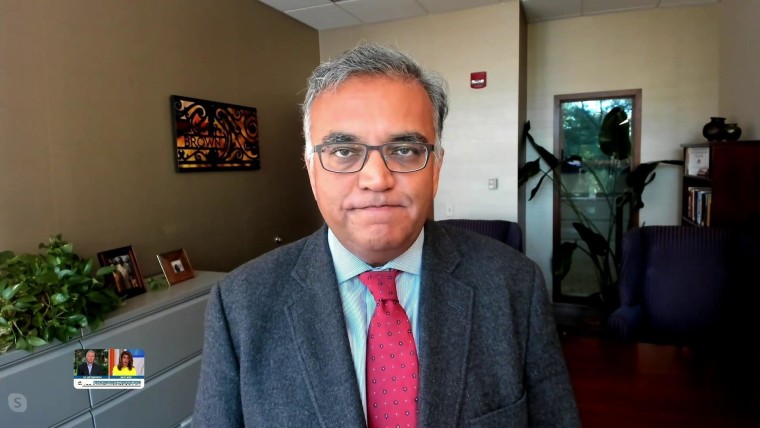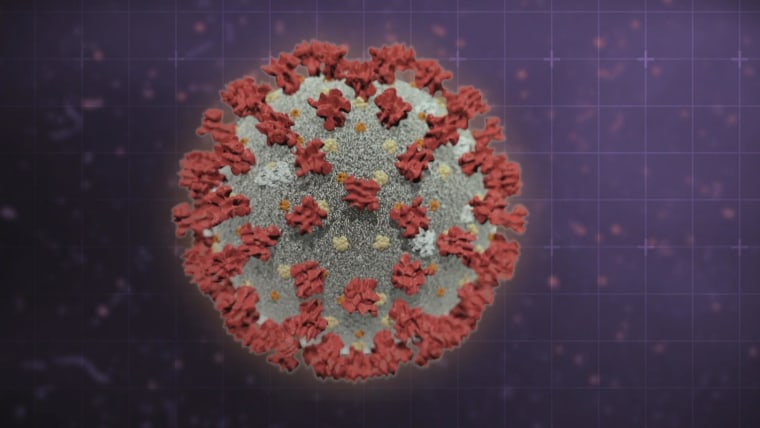How Common Is It To Get Covid Twice
A 25-year-old man living in Reno, Nevada, who first tested positive for COVID-19 in mid-April, became sick again with the virus in late May. He appears to be the first confirmed case of COVID-19 reinfection in the U.S.
Questions about immunity to the coronavirus, antibodies and reinfection have loomed since the beginning of the pandemic. Even President Trump has wondered whether he might be "immune" after contracting the virus earlier this month. Most people want to know: Does contracting the coronavirus prevent you from getting it again, and if so, for how long? In mid-August, the Centers for Disease Control and Prevention suggested that immunity to the virus could last at least three months, but much is still unknown.
So far, there have been at least four documented cases of reinfection, which means we can confirm the phenomenon is possible — but little else, experts say.
"As a starting point, many of us wanted to be optimistic that (reinfection) would not be something we'd see so early on," Dr. Howard Forman, a professor in Yale's School of Public Health in New Haven, Connecticut, told TODAY in September. "But the fact that it happened is not completely surprising."
As researchers wade through the available data on reinfection, experts are stressing to the public that the reports of reinfection are neither a reason to panic nor to let your guard down. Here's why.

What do these recent cases of reinfection mean?
So far, there have been at least four documented cases of COVID-19 reinfection, meaning an individual was infected with the coronavirus, recovered and became infected again with the same virus. Genome sequencing is used to detect these cases because it assesses whether the virus in the second infection is identical to the first; if it's slightly different, as viruses mutate over time, it's a case of reinfection.
The first case was in Hong Kong, where the patient was sick and hospitalized from late March to early April and tested positive again on Aug. 15. The second time, he was asymptomatic. Europe has seen two cases of reinfection, one in an older, Dutch person with a weakened immune system and another in Belgium.
In the U.S., a 25-year-old man in Reno, Nevada, tested positive for COVID-19 in mid-April and became sick again in late May. The genomic evidence showed it was a true case of reinfection. This man was sicker with his second infection, requiring hospitalization. Pending more data, this report could dash theories that reinfection will be less severe due to antibodies.

While these cases suggest reinfection does happen, it's still not clear how widespread it is.
"We don't know if these people are outliers or if they're representative of something that's going to be more common but we're only just starting to notice it," Dr. Krystina Woods, hospital epidemiologist at Mount Sinai West in New York City, told TODAY in September. "I don't think we're at a place where we can make any generalizations just yet."
The four cases' range of illness, from asymptomatic to severe, is also worth noting. Woods said there could be asymptomatic cases that have gone unnoticed.
"We see a spectrum of disease with the first infection, and potentially we may see a spectrum of disease with the reinfection, but we just don't know that yet," Woods said, stressing that four cases are a "teeny tiny" proportion of the millions of people who've been infected.
Another important but unanswered question the recent research brings up is whether reinfected people can transmit the virus to others, according to Forman.
"A lot of people are talking about herd immunity at this point," he explained. "If it were the case that a second infection was always symptomless and you couldn't transmit it, that could contribute to herd immunity combined with a vaccination program. But if it turns out that you're able to transmit your reinfection, then there might be no effective herd immunity from the infection (until a vaccine becomes available)."
That said, Forman is optimistic about current reinfection reports. "Inside the six-month window that we're dealing with, the fact that we've seen very few reinfections with symptoms should be comforting," he said.
What do reinfection reports tell us about COVID-19 immunity?
While research on previous coronaviruses, like SARS and MERS, has found that immunity after a first infection usually lasts between one and three years, it's too early to come to the same conclusion about COVID-19.
A recent study found that COVID-19 antibodies may last for four months, but it's still unclear what level of antibodies could protect against reinfection or lead to a less severe, second infection, and for how long.
"There are probably a lot of variables that go into when somebody might be susceptible again," Woods said, referencing the reinfection case in the patient with the weakened immune system.
"Some of it might have to do with their own immune system and how their body reacted to the first infection," she continued. "There might be some individual-specific traits ... With four cases, it's impossible to figure that out."

There's still a lot to "tease out" about immunity at this stage, Dr. Allison Agwu, an infectious disease physician at John Hopkins in Baltimore, Maryland, told TODAY in September. "We have been challenged in finding hard-and-fast rules (for COVID-19) ... In some diseases, we can say definitely we know this equals that. We don't have those for this disease."
Still, there are few enough reinfection reports at this stage that Forman believes "there is some durable immunity of some type that prevents people from getting sick," he said.
What should the public do?
Forman, Woods and Agwu all stressed that these reinfection reports reiterate the importance of taking precautions to prevent spread of the coronavirus, even if you've been infected recently. For example, Forman said the data suggests infected people should get tested again "after a certain interval" because it's possible to be reinfected. "If you're a family member showing up to a nursing home facility and you … had COVID five months ago, that's no longer a definitive way of saying you don't have to worry about this person anymore," he added.
Woods, meanwhile, sees reinfection reports as "another opportunity to reinforce the things that we know work, which are hand-washing, distancing and masking ... It doesn't materially change what we're doing."

Agwu added that reinfection reports confirmed the medical community's suspicion and should not be cause for panic.
"With panic, there may be some futile behavior that comes out, 'I might as well not wear my mask' ... or 'I'll keep trying to get infected so I can build immunity.' None of that makes sense," she said. "We think (immunity) is probably in short order, but it's variable ... It's not a pass to stop wearing a mask ... and it's definitely not a pass on getting a vaccine when it becomes available."
This story was updated on Oct. 6 to include President Trump's comments about immunity and the coronavirus.
How Common Is It To Get Covid Twice
Source: https://www.today.com/health/covid-19-reinfection-can-you-get-coronavirus-twice-what-does-t190764
Posted by: gomezsonsen.blogspot.com

0 Response to "How Common Is It To Get Covid Twice"
Post a Comment